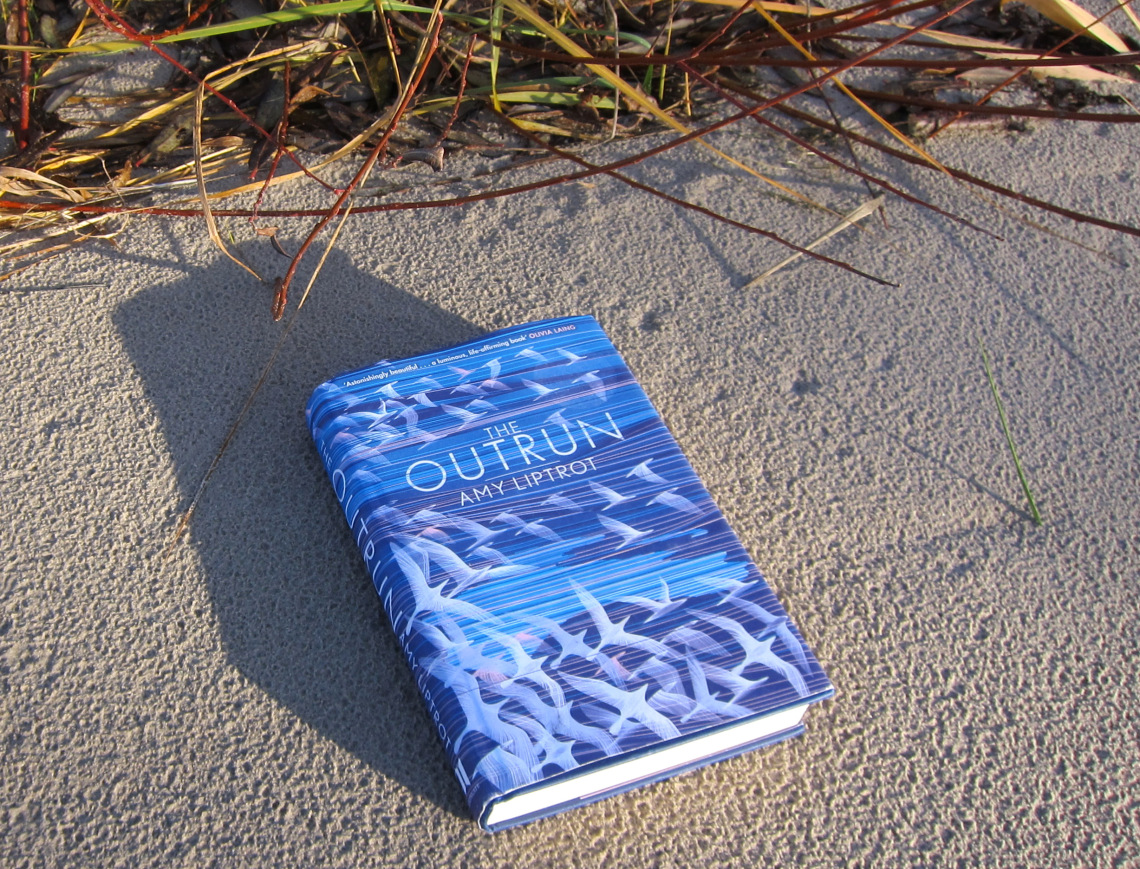She put her mouth to the red-stone pillars of the cathedral to try to bite and kiss it. She was a teenager, with dried magic mushrooms in her tummy. Who hasn’t done some crazy things when young?
In her early twenties she happily left her parents house in Orkney, on one of many islands in Scotland, where she felt isolated, and hurried to metropolis – to experience the real life and real parties. To find her place.
Years go by. She stumbles and falls. The young and cool woman, diva of the London’s dance floors, tries to crawl out of the vicious circle of the alcohol addiction. Friends, including her boyfriend, have left her, she is fired more than once, almost raped.
She finds herself at a rehab and returns to the island afterwards, in hope to understand the traps of consciousness and the deeps of subconscious. To learn to see the world with new, sober eyes. Including the place where she grew up and wanted to leave so badly years ago. The harsh winter months she decides to spend on an even smaller island with only seventy inhabitants – in a pink house. North Sea, edges of cliffs, and wind, that blows, weaves her anew.
“The Outrun”, by a British writer and journalist Amy Liptrot, is her first book and it’s about her. Absolutely open, disarmingly honest, life affirming and with a thin lining of silver sorrow. The world, which she unpacks again, by swimming in the sea throughout a year, even if skin burns from cold, by watching the stars and birds with binoculars and studying the history of Orkney islands, this world slowly heals the wounds, that are constantly heated open with cravings for one tiny sip of a drink. Others are allowed to swallow; she is not.
Sharpening her vision to notice nature, mingles with an honest inner dialogue, thus creating a kind of braid on pages. There are moments when this braid gets so heavy, your scalp hurts. But then suddenly hair fall loose, and you shake your head laughing. You turn pages as nervously as she smokes cigarettes; but then you stop and wallow on them as a seal on a warm sandy beach.
You want to be her, when after a party she walks in London streets at night with worn-down boots and a bottle of beer. She wants to rub the city on her skin, to inhale the streets. She is biting her mouth, and because of the drugs she swallowed earlier, there’s a heat in her lips and nipples and clitoris, and she wants more. You want to be her, when she has a lazy day with her friends in a park, and to drink that bottle of wine that’s brought from shop.
But you are as much there, when she experiences the nightmare that her life has turned into. And you are there, when she spends many summer nights awake, filling a task of bird conservation project and searching for a corncrake, a bird that lives and hides in a long grass. And it hurts, when her first thought, when standing on a cliff and enjoying a mind blowing view, is to have a cold beer. Even after months of being sober and discovering many new angles of island life.
How to do something, how to live to the fullest, instead of just trying not to slip? You should read. I’m glad, I did.
“The Outrun”, Amy Liptrot, Canongate, 2015

Viņa pielika lūpas pie baznīcas mūra un mēģināja nograuzt gabaliņu, kad pusaudžu gados bija apēdusi sēni. Kurš tad nav bijis dulls? 20 gadu vecumā viņa laimē pamet dzimtās mājas uz izolētas Skotijas salas un dodas uz metropoli – īstajā dzīvē un uzdzīvē. Atrast savu vietu.
Paiet gadi. Viņa klūp un krīt. Jaunā, stilīgā sieviete, Londonas klubu grīdu dīva, cenšas izkārpīties no alkoholisma apburtā loka, draugs un draugi pametuši, no darbiem vairākkārt atlaista, gandrīz izvarota. Izgājusi rehabilitācijas kursu, viņa atgriežas uz salas, lai izprastu apziņas akačus un ieraudzītu pasauli vēlreiz. Arī dzimto vietu, no kuras aizlaidās. Ziemu viņa nolemj pavadīt uz vēl mazākas salas rozā mājā 70 iedzīvotāju ciematā. Ziemeļu jūra, klinšu dzegas un vējš, kas pluina, pamazām auž viņu no jauna.
“The Outrun” ir britu autores Emijas Liptrotas pirmā grāmata. Par viņu. Absolūti atklāta, atbruņojoši godīga, dzīvi apliecinoša un oderēta ar smeldzi. Pasaule, kuru viņa atpako no jauna, peldoties jūrā cauru gadu tā, ka āda sāp, ar binokli izzinot zvaigznes un putnus, un pētot salu vēsturi, tā sāk lēnām aizvilkt caurumus, kurus karsē vaļā vēlme paņemt rokās glāzi. Citi drīkst, viņa ne. Dabas saredzēšana mijas ar iekšējo dialogu, viss savijies bizē. Brīžiem mati pie skalpa no tās smaguma sāp. Bet tad bize atraisās un tu smiedamies purini galvu. Daudzas lapas šķir tikpat nervozi kā viņa smēķē cigaretes, skatoties horizontā, bet pie dažām iegrimsti kā ronis siltās smiltīs.
Tev arī tā gribas, kad viņa pēc ballītes soļo nodragātos zābakos pa Londonu naktī, kārojot pilsētu ierīvēt ādā, ieelpot plaušās ielas, kad viņa kodī muti un vaigi svilst un nupat apēstā ripa liek lūpām, krūšu galiem un klitoram kņudēt. Tev arī sagribas saulainā dienā vārtīties parkā ar draugiem un dzert no veikala atnesto vīnu. Bet tikpat reāli tu izdzīvo murgus, kas seko. Un tikpat cieši līdzās esi, kad viņa vasaras gaišās naktis ornitologu uzdevumā pavada, nenogurstoši meklējot griezi – putnu, kas slēpjas garā zālē. Un smeldz, kad pie skaista skata, stāvot uz klints, viņas pirmā doma – pat pēc mēnešiem skaidrā – ir, eh, kā tagad gribētos aukstu aliņu.
Kā darīt pa īstam, nevis pūlēties kaut ko vairs nekad nedarīt?
“The Outrun”, Amy Liptrot, Canongate, 2015
